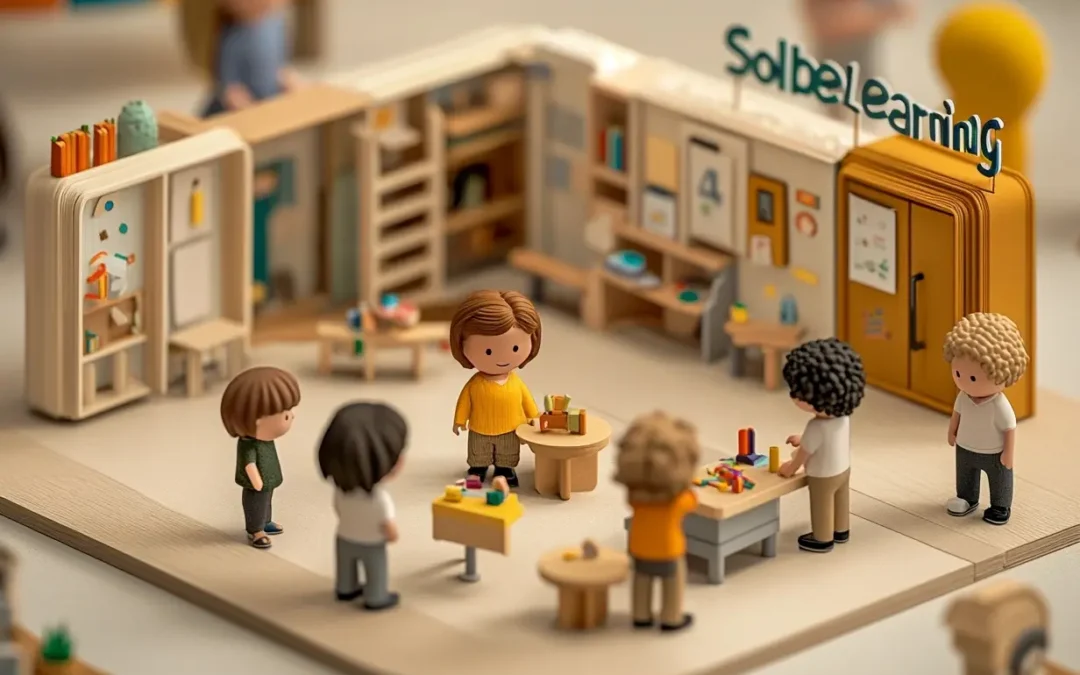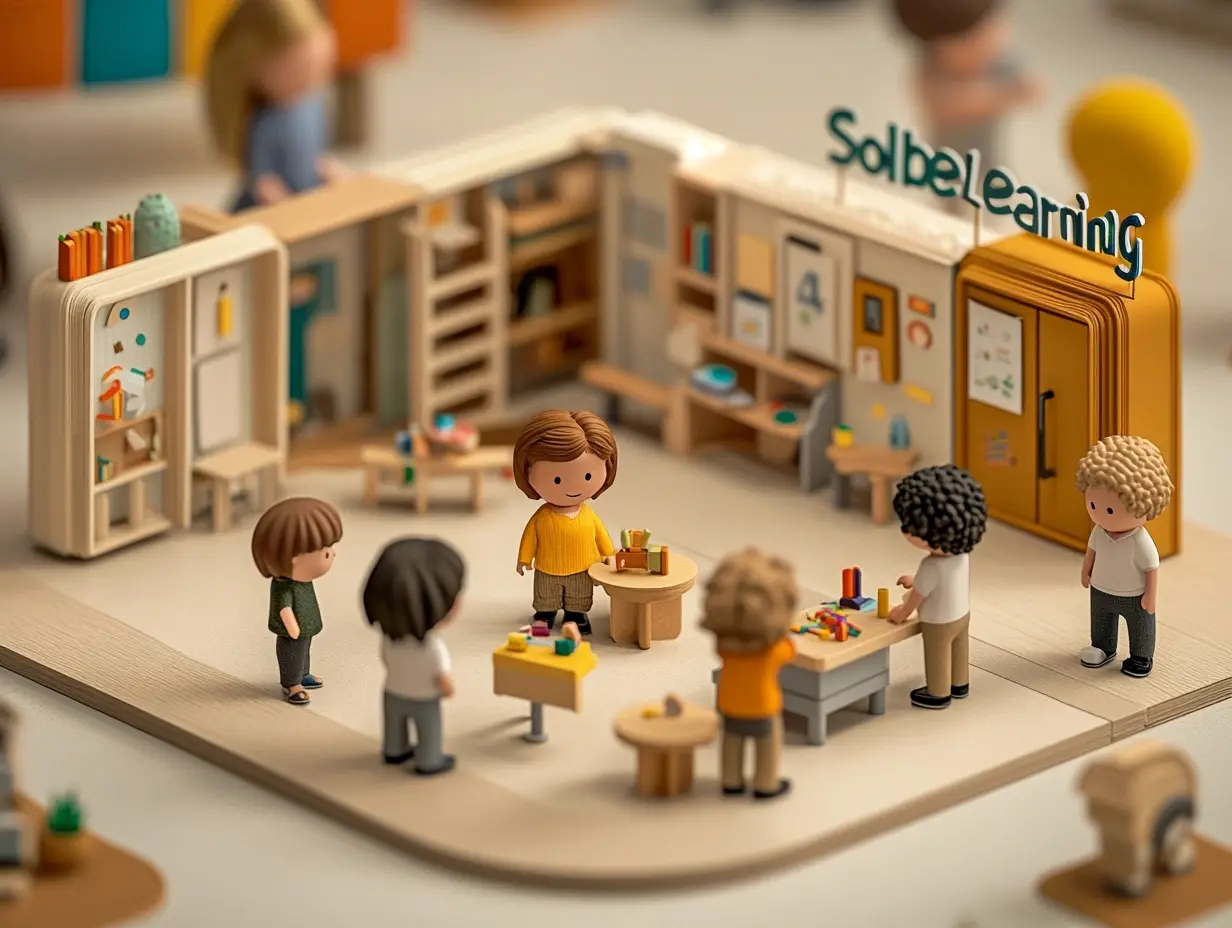Many parents grapple with the decision to use part-time childcare for their children. While some worry about potential negative effects, research shows that part-time childcare can have various benefits for a child’s development. In this blog, we’ll explore the different aspects of part-time childcare and its impact on young minds.
The Role of Social Interaction in Early Years
Social interaction is a crucial part of a child’s early development. Part-time childcare provides children with the opportunity to interact with their peers, learn social norms, and develop important social skills. This interaction can foster better communication and empathy from a young age.
In a childcare setting, children are exposed to various social situations that they may not encounter at home. This exposure allows them to learn how to share, take turns, and resolve conflicts. These early social interactions can lead to greater social competence, which can benefit them throughout their lives.
Additionally, the diverse social environment in part-time childcare can help children become more adaptable and open-minded. They learn to interact with children from different backgrounds and with different abilities, which can foster inclusivity and a sense of community. For example, socialization and play in early childhood have been associated with higher levels of empathy and prosocial behavior later in life.
How Structured Environments Benefit Children
A structured environment offers a reliable routine, which can be very beneficial for young children. Part-time childcare centers often have set schedules that include various activities such as playtime, learning sessions, and naps. These routines provide children with a sense of stability and predictability, helping them feel secure.
Having a consistent routine can also aid in the development of self-discipline and time management skills. Children learn the importance of following a schedule and the sequence of daily events, which can help them transition more smoothly into formal schooling. The structured environment can also reduce anxiety as children know what to expect each day.
Furthermore, the activities planned in a structured environment are often designed to promote both physical and cognitive development. Engaging in age-appropriate tasks and games helps stimulate their minds and bodies, ensuring holistic development. For example, a skills-based curriculum with individualized instruction can foster a life-long love of learning.
Enhancing Cognitive Development
Exposure to part-time childcare can enhance a child’s cognitive development. Centers often offer age-appropriate educational activities that stimulate the brain. These activities help in developing problem-solving skills, increase curiosity, and enhance overall learning capabilities.
Children in part-time childcare settings are frequently engaged in activities that promote literacy and numeracy skills. Storytime sessions, for example, can significantly boost a child’s vocabulary and comprehension skills. Similarly, engaging with puzzles and building blocks can enhance their spatial awareness and logical thinking.
Moreover, diverse cognitive activities in childcare settings can cater to various learning styles, ensuring that each child can learn in a way that suits them best. This variety helps children become well-rounded learners, ready to face academic challenges. It’s noteworthy that quality daycare and early childhood programs have a positive impact on children’s long-term academic success.
Emotional and Behavioral Growth
Children in part-time childcare learn to navigate emotional and behavioral challenges. Being in a group setting teaches them how to manage their emotions, adapt to different situations, and follow rules. This early exposure prepares them better for school and other social settings.
For instance, children may face situations where they feel left out or frustrated. Guided by trained caregivers, they learn to express their feelings constructively and develop coping strategies. Emphasizing emotional literacy at a young age can promote resilience and emotional intelligence, which are crucial for personal and academic success.
Furthermore, part-time childcare environments provide an opportunity for children to receive positive reinforcement for good behavior, helping them understand the consequences of their actions. Knowing that their caregivers appreciate their efforts can boost their self-esteem and encourage them to continue behaving well.
Parental Peace of Mind
Knowing that their children are in a safe, enriching environment gives parents peace of mind. Part-time childcare allows parents to balance work and family commitments without compromising on the quality of care their children receive. It also provides parents with some much-needed personal time, which can improve overall family dynamics.
For parents, part-time childcare serves as a reliable support system. It offers the assurance that their children are not just being looked after but are also learning and growing. This peace of mind can reduce parental stress, enabling them to be more present and engaged when they are with their children.
Moreover, part-time childcare provides parents with opportunities to connect with other families, creating a community of support and shared experiences. This connection can be incredibly valuable, especially for first-time parents who may feel overwhelmed by the responsibilities of parenthood. The benefits of having a healthy work-family balance cannot be overstated.
A balanced approach to childcare also empowers parents to pursue their professional and personal goals. Knowing their children are in capable hands, they can focus on their careers, hobbies, or even just taking a well-deserved break. This balance can enhance the overall well-being of the entire family, making it easier to navigate the challenges of modern parenthood.
Final Thoughts on Part-Time Childcare
Part-time childcare offers various benefits, from promoting socialization to providing a structured environment for children. While no two families are the same, part-time childcare can be a wonderful option for many, offering a balance between home care and early education. Parents should feel empowered to make the best decisions for their children, knowing that quality part-time childcare can positively impact their child’s development.



